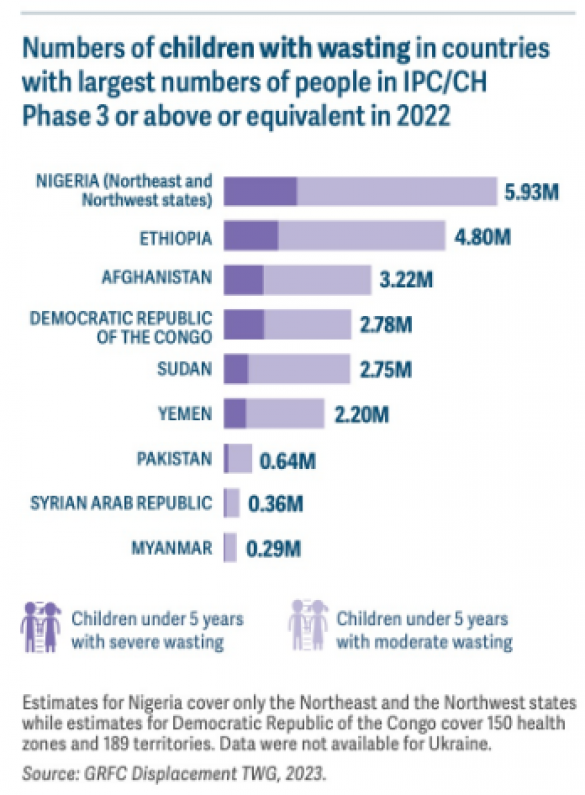
USA: According to a report released on Wednesday, more than a quarter of a billion people in 58 countries experienced severe food insecurity last year as a result of war, climatic change, the COVID-19 pandemic, and Russia's conflict in Ukraine.
People in seven of those nations—Somalia, Afghanistan, Burkina Faso, Haiti, Nigeria, South Sudan, and Yemen—face starvation and death, according to the Global Report on Food Crises, an alliance of humanitarian organisations established by the UN and the EU.
A "stinging indictment of humanity's failure" to carry out UN goals to end world hunger, UN Secretary-General António Guterres said in response to the report's finding that the number of people experiencing acute food insecurity and needing urgent food aid, or 258 million, had increased for the fourth year in a row.
Also Read: King Charles likes to visit India ‘at the earliest opportunity’: Report
While the report found that the severity of the issue increased as well, "highlighting a concerning trend of a deterioration," the increase from the previous year was partially attributable to more populations being analysed.
Hunger is caused by a complex interplay of factors, according to Rein Paulsen, director of emergencies and resilience for the UN Food and Agriculture Organisation. They include wars, climatic changes, the pandemic's effects, and the fallout from Russia's war in Ukraine, which has affected the world market for fertilisers, wheat, maize, and sunflower oil.
Also Read: More than 100 mafia suspects are detained by European police in a widespread operation
The poorest nations that depend on food imports have been most severely impacted. Prices have risen, and those nations have suffered as a result, according to Paulsen.
He urged a "paradigm shift" in which more money is invested in agricultural interventions that foresee and seek to prevent food crises.
The imbalance, or mismatch, between the amount of funding that is given, what that funding is used for, and the kinds of interventions needed to bring about a change, he said, is the challenge that we face.
The newly appointed head of the UN World Food Programme has warned that the organization's ability to meet rising demand for food aid is "running dangerously low." At a presentation of the report, Executive Director Cindy McCain warned the panellists that if significant new funding doesn't materialise soon, the organisation may be forced to make "heart-breaking decisions to slash" assistance.
McCain made mention of her recent trip to Somalia, where she claimed that "millions are teetering on the edge of hunger and catastrophe." We all know it doesn't have to be that way, she said in a heartfelt voice. A person experiences acute food insecurity when their ability to eat enough food puts their lives or livelihoods in immediate danger.
Also Read: In disputed waters the Philippines discovers over 100 Chinese "maritime militia" vessels
According to Jutta Urpilainen, the EU's commissioner for global partnerships, the bloc's plan to combat hunger includes funding programmes that "boost local production and reduce dependence on unsustainable imports."